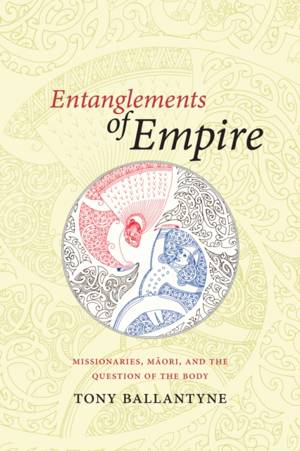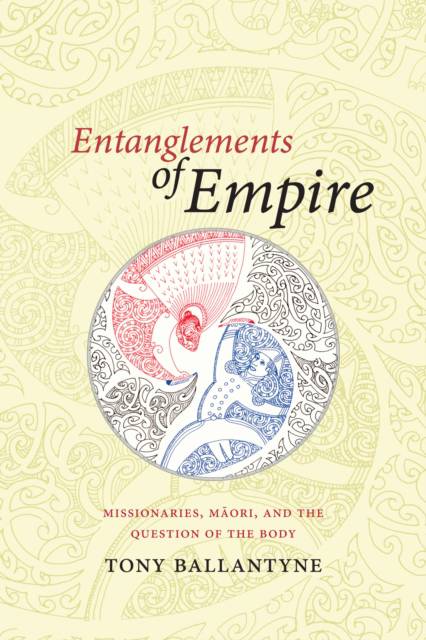
Je cadeautjes zeker op tijd in huis hebben voor de feestdagen? Kom langs in onze winkels en vind het perfecte geschenk!
- Afhalen na 1 uur in een winkel met voorraad
- Gratis thuislevering in België vanaf € 30
- Ruim aanbod met 7 miljoen producten
Je cadeautjes zeker op tijd in huis hebben voor de feestdagen? Kom langs in onze winkels en vind het perfecte geschenk!
- Afhalen na 1 uur in een winkel met voorraad
- Gratis thuislevering in België vanaf € 30
- Ruim aanbod met 7 miljoen producten
Zoeken
Entanglements of Empire
Missionaries, Maori, and the Question of the Body
Tony Ballantyne
Hardcover | Engels
€ 180,45
+ 360 punten
Uitvoering
Omschrijving
The first Protestant mission was established in New Zealand in 1814, initiating complex political, cultural, and economic entanglements with Māori. Tony Ballantyne shows how interest in missionary Christianity among influential Māori chiefs had far-reaching consequences for both groups. Deftly reconstructing cross-cultural translations and struggles over such concepts and practices as civilization, work, time and space, and gender, he identifies the physical body as the most contentious site of cultural engagement, with Māori and missionaries struggling over hygiene, tattooing, clothing, and sexual morality. Entanglements of Empire is particularly concerned with how, as a result of their encounters in the classroom, chapel, kitchen, and farmyard, Māori and the English mutually influenced each other's worldviews. Concluding in 1840 with New Zealand's formal colonization, this book offers an important contribution to debates over religion and empire.
Specificaties
Betrokkenen
- Auteur(s):
- Uitgeverij:
Inhoud
- Aantal bladzijden:
- 376
- Taal:
- Engels
Eigenschappen
- Productcode (EAN):
- 9780822358176
- Verschijningsdatum:
- 29/12/2014
- Uitvoering:
- Hardcover
- Formaat:
- Genaaid
- Afmetingen:
- 157 mm x 231 mm
- Gewicht:
- 612 g

Alleen bij Standaard Boekhandel
+ 360 punten op je klantenkaart van Standaard Boekhandel
Beoordelingen
We publiceren alleen reviews die voldoen aan de voorwaarden voor reviews. Bekijk onze voorwaarden voor reviews.









